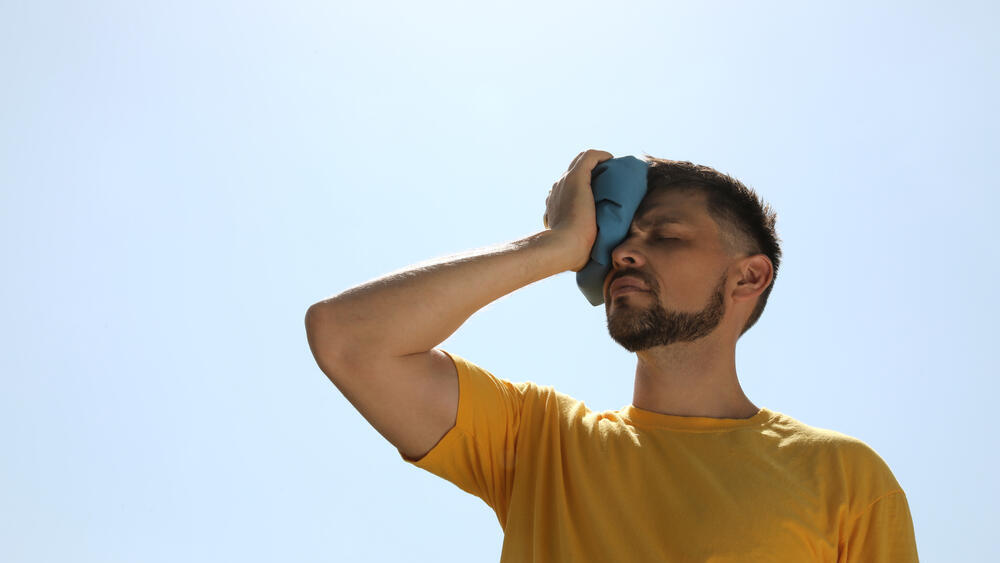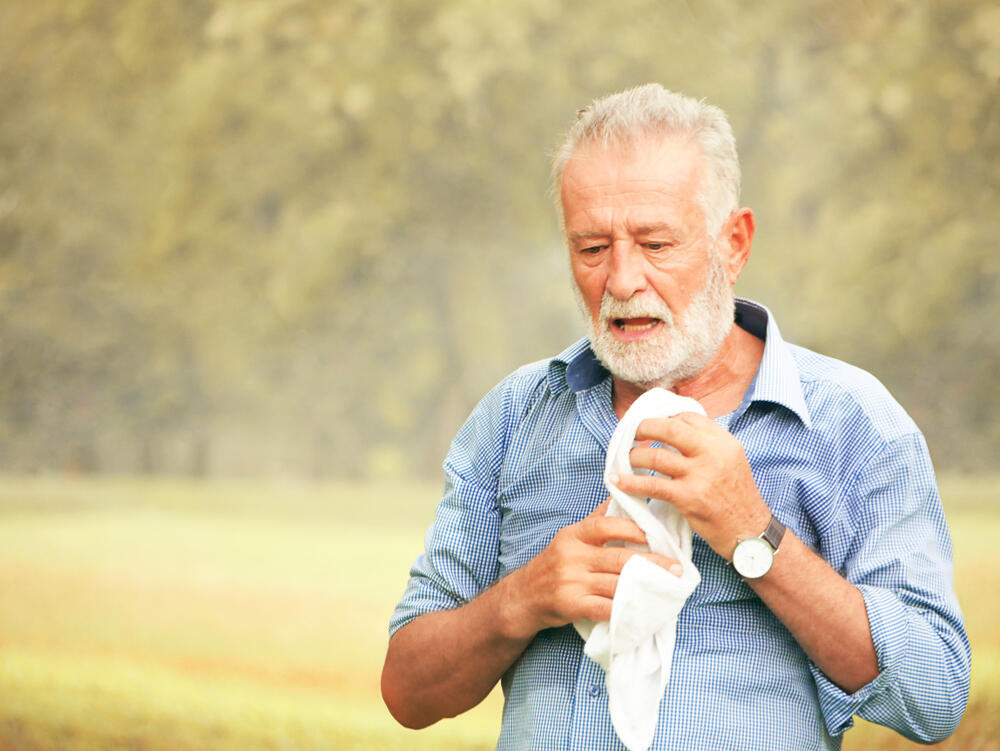A temperature of 40.7° was recorded in Tel Aviv on Thursday, breaking previous records for April of the past 85 years and the hottest day on record in Israel since 1907.
The extreme heat can be hazardous to our health, and it's important to act accordingly. Experts explain how heavy heat can harm our body organs and their functions, and what must be done to protect them.
"Disturbances in heart rate due to electrolyte imbalance"
"Heat increases the load on all body tissues, which in turn increases the load on the heart because it needs to supply oxygen and blood to the tissues," explains Prof. Eddie Koifman, a cardiologist and senior researcher at Assuta Medical Centers.
"In a state of extreme heat, the body experiences damage processes, one of them being dehydration. In a state of dehydration, we lose fluids at an alarming rate that we do not always replenish. When we don't have enough bodily fluids, the heart has difficulty functioning because blood vessels lack sufficient volume. Then, the heart needs to work hard to pump blood to supply the same amount of blood that the body needs, increasing the stress on the heart.
"In cases of heatstroke, body temperature rises which can lead to failure of several critical functions. Although the heart is part of it, it involves all body mechanisms which may fail at different temperatures. Patients with heart conditions are prone to rhythm disturbances due to changes in the body's electrolyte balance. When we lose significant amounts of body fluids, the percentage of salt in our body rises. This can lead to life-threatening rhythm disturbances."
What are the symptoms indicating a problem?
Accelerated heartbeat, physical difficulties. Patients with heart disease may also experience chest pains. In fact, these are all symptoms of heart failure. Heart failure may also occur due to dehydration. When the body dehydrates, it triggers an inflammatory reaction in the body, a condition similar to infection. The body reacts to this stress, which increases the likelihood of blood clots, which are one of the mechanisms of heart attacks. "On days with smog, there are more respiratory disease episodes"
Dr. Amir Bar-Shai, Director of the Pulmonary Institute at Ichilov Medical Center, explains that high temperatures don't affect our lungs as much, but smog definitely does. "People with respiratory diseases such as asthma or COPD, have very sensitive airways. These diseases usually affect the small airways, and the smog can cause shortness of breath, coughing, phlegm, and wheezing," he said. "We know that on smog days, emergency rooms are packed and there are more respiratory disease episodes."
Dr. Bar-Shai explains that in such cases the most effective thing to do is simply to avoid exposure to smog. "For people with respiratory diseases, it's better to go out as little as possible on those days, certainly not to engage in physical activity outdoors, and if you really must go out, then make sure it's kept to a minimum," he warned.
Fluid balance is critical for both the mother and the fetus
Dr. Anat Lavie, director of the maternity ward at Lis Maternity & Women's Hospital, explained that exposure to extreme heat during pregnancy can be significant. "The fetus's temperature is one degree higher than that of the mother. Animal studies have found that when exposed to hot temperatures, certain abnormalities occur in fetuses," she said. "However, when the same things were studied in humans, for example, in cases of fever or excessive sauna use, the findings were inconclusive. But when it's very hot and humid outside, especially above 32 degrees Celsius, some spectrum of effects can be noticed, ranging from dehydration to heatstrokes in extreme cases."
And how does this affect pregnancy?
For example, in dehydration, we lose about two percent of bodily fluids. Fluid balance is crucial for both the mother and the fetus. If it is compromised, it can affect the body's electrolyte balance, which can lead to an oxytocin deficiency, responsible for uterine contractions, leading to premature contractions.
The classic example is women fasting on Yom Kippur. At the end of Yom Kippur, we often see women coming to us with complaints of premature contractions. We give them fluids via IV, and usually, it passes. Of course, we are talking about a mild deviation, but when it comes to extreme heat, it's something that needs attention.
How can it be identified?
The signs are not very specific: thirst, dry mouth, sunken eyes, dark-shaded urine, headaches, nausea, vomiting, and rapid pulse. When a woman identifies one of these symptoms, she needs to act quickly and seek medical attention.
Health Ministry: Drink water responsibly
To prevent heat-related conditions in the upcoming summer, the Health Ministry has published several useful recommendations:
Avoid exposure to heat and sun: This recommendation is important for the general public, particularly the elderly and patients with chronic diseases. Avoid unnecessary physical exertion, make sure to drink water, and be in air-conditioned places as much as possible.
Stop for refreshments and make sure you have appropriate protection: When staying outdoors, it is recommended to wear a wide-brimmed hat, wear light and comfortable clothing, and apply sunscreen. The Health Ministry reminds us not to leave infants, children, and the elderly in hot cars without supervision. In addition, do not leave pets in the car or a building without water and ventilation at a reasonable temperature.
Pay attention to signs that may indicate heatstroke: Be aware that during heatwaves, there may be a risk of developing heatstroke, which occurs when the body cannot cool itself in a warm environment. The risk of heatstroke is higher in older adults, children aged 0-4, patients with heart and blood vessel diseases, overweight individuals, patients with other chronic diseases, patients taking certain medications, and during dehydration.
In case of at least one of the following symptoms: high body temperature above 39.5 degrees Celsius, red, hot, and dry skin (without sweating), rapid heartbeat, severe headache (and/or throbbing feeling in the head), dizziness, nausea, confusion, you should call the emergency hotline and receive immediate treatment. Until help arrives, stay in a cool and shaded area and ensure body cooling.
Most importantly, during a heatstroke, do not let the affected person drink! Fluid treatment should be administered through IV by the medical staff.





